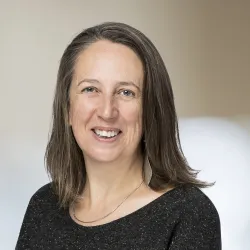Associate Professor Michelle Boyle - Burnet Institute
Associate Professor Michelle Boyle (Burnet Institute) will present "Host directed therapy to boost immune responses to malaria".
Event series
Content navigation
Description
Host directed therapy to boost immune responses to malaria.
Hosted by: Associate Professor Brendan McMorran
Abstract
To improve malaria control, novel approaches are needed to enhance the efficacy of current vaccines and drug treatment approaches. Emerging evidence suggests that natural, drug-mediated, or vaccine-induced immunity against malaria is impeded by malaria-induced immunoregulatory pathways, which drive regulatory responses in both innate and adaptive cells. Our work has focused on understanding these regulated pathways, particularly in cells that drive antibody development. With a focus on T-follicular helper cell, the CD4 T cells that drive B cell responses we have identified protective and disrupted responses that impact antibody development. To take these discoveries towards the development of new therapies that can boost malaria immunity, we are currently testing a host directed therapy in controlled human malaria infections. This therapy – ruxolitinib (Jakavi®) –can suppress Type I IFN which have been shown to drive regulatory T cells during malaria, and in animal models ruxolitinib can enhance protection when used in combined with anti-parasitic drugs. Our data suggest that redirecting the host immune response in infection has the potential to be an effective adjunct to boost protective immune development in response to malaria drug treatment, or malaria vaccination.
Biography

Dr Michelle Boyle completed a PhD on Plasmodium falciparum red blood cell invasion and vaccine development in 2012 at Burnet Institute and University of Melbourne. She was awarded an NHMRC CJ Martin Fellowship to undertake postdoctoral training at the University of California, San Francisco, and then worked at the Menzies School of Health Research in Darwin. Dr Boyle established her laboratory in 2018 at QIMR Berghofer in Queensland as an EMBL Australia Group Leader. She was awarded the 2023 CSL Centenary Fellowship, and 2024 Snow Medical Fellowship in recognition of her research on humoral and cellular mechanisms of immunity to malaria and the advancement of vaccine development. Dr Boyle recently moved to Burnet Institute to lead the Cellular Responses to Disease and Vaccination working group, which focuses on understanding the germinal response during malaria, and developing novel therapeutics to boost antibody development in malaria and other chronic infections.
Location
Finkel Lecture Theatre
